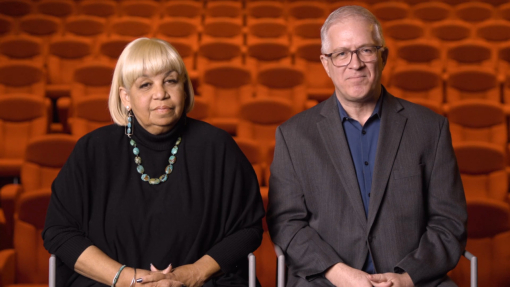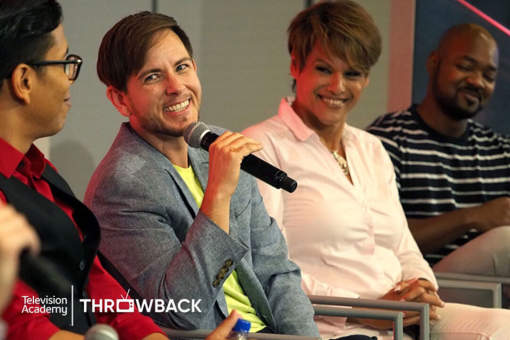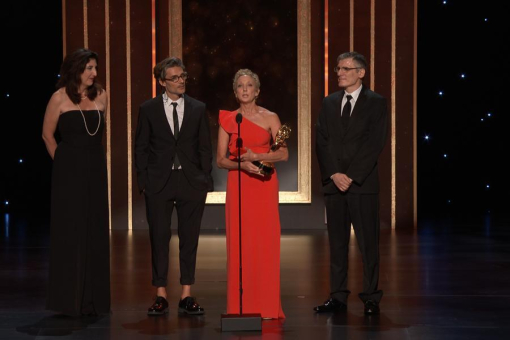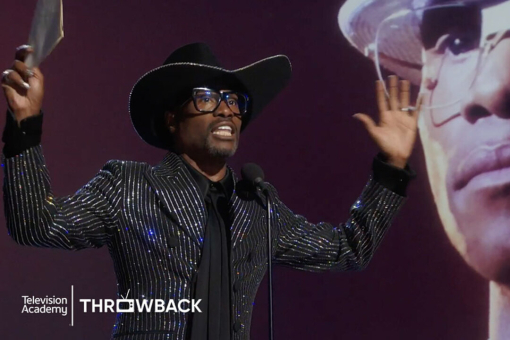For many, being told they have a terminal illness might seem like the beginning of the end. But for some who have received that news, it's only the beginning.
The individuals profiled in The CW's documentary series My Last Days fit into the latter category, and their journeys to that place inspire viewers to ponder for themselves: when time on Earth grows more finite than indefinite, how do we leave this world better than we found it?
It's a serious question, but the show's remarkable subjects and relatable style share answers that enlighten with humanity, frankness, and occasionally, humor. As episodes unfold, watching these people put their increasingly limited time to use becomes a lesson in living with purpose, and the surprising reserves of strength one can find in vulnerability.
Marinda, a professional choreographer diagnosed with the connective tissue disorder Ehlers-Danlos syndrome, has lived for dance. Now, it keeps her going, with a mission to not only continue teaching others the art form that challenges her body more and more every day, but to choreograph an ensemble work that tells her story with physicality, immediacy and emotion.
The facets of Marinda's day-to-day existence illustrate the scope of experience documented in My Last Days.
By her own admission successful and productive as well as helpless and dependent, Marinda also showcases her vigor through the grace and athleticism of her choreography and dancers. Deft editing and camera work relate their passion—and hers—capturing each step, stomp and sway with the resonance it deserves.
"I want everyone to remember," Marinda says, "the thing you take for granted, someone else is fighting for."
The impact of a life committed to moving forward is also examined through interviews with friends and families, who share their own consciousness of mortality and the connectedness that fuels each subject's legacy.
Candor and hard-earned insight are on display, whether from spouses, best friends, colleagues or a mother with ALS, the same disease paralyzing her son Anthony, the photographer who had once been her own caregiver.
Speaking through the aid of eye gazing technology, Catherine describes Anthony as having compassion and depth of character, even as a child. Her praise is echoed by Laarne, Anthony's wife and herself a photographer who recounts their courtship and advocates for the continuing pursuit of his art.
And when a living room full of loved ones declares their solidarity, vowing to act as Anthony's helping hands for street-photography shoots (along with his special wheelchair-mounted camera equipment), the show comforts with the notion that no one living in service of others is alone.
"I want everyone to know that you can live a meaningful life if you evolve with your circumstances," Anthony says.
While the stories' timeframes hew closely to the show's title, the trials of life pre-diagnosis are not ignored. Bob, diagnosed with a neurodegenerative brain disease only six months before filming, was raised by his single stepfather before raising his own daughter as a single parent.
While making money to meet their needs any way he could, including as a bouncer for 19 years, hits with beer bottles and baseball bats contributed to the numerous concussions that take their toll on his future.
His shakiness is seen as he holds a cellphone, a reminder that this seemingly healthy man has dealt with adversity for most of his life. Still, he refuses to let adversity define him, despite an emotional hill to climb in the face of illness.
Bob has dedicated himself to repairing and donating bikes to kids in need, an effort that has attracted attention and recognition throughout his community and beyond. The decision to change lives for the better in this way came naturally to him.
"I'm a full-time mechanic, that's what I do," Bob tells host Justin Baldoni. "I build things, I fix things."
Bob's matter-of-fact demeanor lets viewers in on the calmness that can coexist with urgency, and the spectrum of tones that fills My Last Days.
The reality of sadness is met head-on. Ellie, whose faith, friends and family form a reliable network of support through what may be days or weeks left to live, lays a foundation of love and strength for her young son to draw upon in the world that follows without her.
And while she celebrates her 40th birthday on camera, with loved ones sharing tributes and memories, a surprise brews, then makes an entrance.
As a guide leading viewers and subjects through unanticipated events, as well as one of the show's directors and executive producers, Baldoni helps usher in the surprises. Special occasions touch the lives of subjects and their loved ones in significant ways. From professional opportunities to personal experiences, each visit from Baldoni brings with it an extraordinary moment.
An ambition is realized. A relationship is honored. A chest is bared.
That's right, at a time when joy might feel in short supply, even a good-natured celebrity semi-strip-tease serves a purpose. The show gives credit to the power of lightness and laughter. Without them, life would be all doom and gloom, not worth living, and certainly not worth cherishing.
Twenty-six years old with terminal leukemia, Diane exemplifies this philosophy. Diane has little trouble offering her views on body parts, bodily functions and her obsession with the Teenage Mutant Ninja Turtles. Complemented by her fiancé Long's positive, solution-oriented attitude, her buoyancy reminds viewers that last days need not be sad days, at least not every day.
"I just want to share the love and the happiness and the smiles with everyone, 'cause like, dude… we could all use it," Diane says.
Sharing the journeys of its subjects is no small feat in and of itself, but My Last Days has served an even greater purpose in doing so—by renewing hope.
This series of life-affirming encounters has enhanced awareness for a number of diseases, led to critical drug trials, raised funds for medical research and prevented suicides. There is always, the show and its subjects believe, something to be gained in being all that you can be.
"I had probably about four minutes of 'why me,'" Ellie says. "And I literally got over it in, like, five minutes. The lens was different. I said, 'why not me?' To me, I was supposed to learn and grow from this experience somehow."
For its candid, personal and powerful look at what it means to be dying—to those for whom living is meant to be shared—My Last Days is profoundly deserving of its 2019 Television Academy Honors.
For the award presentation and acceptance video, click here.











